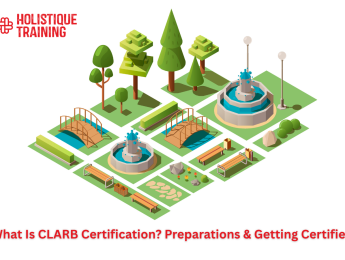- Table of Contents
- Introduction
- What is the Importance of Hotel Management Education in Dubai?
- Key Benefits of Hotel Management Education
- Contribution to Dubai's Economy
- Which are the Top Hotel Management Schools in Dubai?
- Criteria for Ranking
- Overview of Leading Institutions
- 2. Dubai College of Tourism (DCT)
- 3. Canadian University Dubai (CUD)
- 4. MODUL University Dubai
- 5. The Emirates Academy of Hospitality Management (EAHM)
- Comparison of the Top Schools
- What are the Future Trends in Hotel Management Education?
- 1. Integration of Technology and Digitalization
- 2. Focus on Sustainable Practices
- 3. Emphasis on Soft Skills and Emotional Intelligence
- 4. Personalized Learning Experiences
- 5. Global and Cross-Cultural Competence
- 6. Enhanced Industry Collaboration
- 7. Data Analytics and Business Intelligence
- 8. Health and Safety Management
- Conclusion
Introduction
Hotel management education in Dubai is crucial for maintaining the city's status as a premier global tourism destination. As the hospitality industry rapidly expands, there is an increasing demand for skilled professionals who can deliver exceptional guest experiences and efficiently manage hotel operations. Specialized courses in hotel management provide comprehensive training in areas such as customer service, marketing, finance, and sustainability, equipping graduates with the knowledge and skills needed for various roles in the industry. This education not only fosters professional growth and career advancement but also contributes significantly to Dubai's economy by ensuring a high standard of hospitality service, attracting more tourists, and promoting innovation within the industry.
What is the Importance of Hotel Management Education in Dubai?
Dubai is renowned for its luxurious hotels, world-class hospitality, and vibrant tourism industry. The city is a global hub for tourism, attracting millions of visitors annually, which necessitates a high standard of hotel management to maintain its reputation. This dynamic industry offers numerous opportunities for growth, innovation, and employment, making it a crucial sector in Dubai's economy. With the continuous expansion of the tourism and hospitality sectors, there is a growing demand for skilled professionals who can manage hotels efficiently and provide exceptional guest experiences. This demand has led to the development of specialized hotel management courses aimed at equipping individuals with the necessary skills and knowledge.
Key Benefits of Hotel Management Education
- Comprehensive Skill Development: Hotel management courses cover a wide range of subjects including hospitality operations, customer service, marketing, finance, and human resource management. This comprehensive curriculum ensures that graduates are well-prepared for various roles within the industry.
- Professional Growth and Career Advancement: A formal education in hotel management opens doors to numerous career opportunities, from entry-level positions to managerial roles. It also provides a competitive edge in the job market, enabling graduates to climb the career ladder more quickly.
- Global Recognition and Opportunities: Dubai's hotel management education is recognized globally, providing graduates with opportunities to work in prestigious hotels and resorts around the world. The multicultural environment in Dubai also prepares students to work in diverse settings and handle international clientele.
- Innovation and Best Practices: Hotel management courses in Dubai often include training on the latest industry trends, technologies, and best practices. This knowledge is crucial for staying competitive and innovative in a rapidly evolving industry.
- Networking and Industry Connections: Students benefit from strong industry connections facilitated by educational institutions. Internships, guest lectures, and industry partnerships provide valuable networking opportunities and practical experience.
Contribution to Dubai's Economy
The hotel management education sector significantly contributes to Dubai's economy by producing a skilled workforce that enhances the city's hospitality standards. Well-educated professionals help maintain the high quality of service that Dubai is known for, attracting more tourists and boosting the economy.
Hotel management education in Dubai is vital for sustaining and enhancing the city's hospitality industry. It provides individuals with the skills, knowledge, and opportunities needed to succeed in a competitive and dynamic field. This, in turn, supports Dubai's reputation as a premier global destination for tourism and business.
Which are the Top Hotel Management Schools in Dubai?
Criteria for Ranking
To identify the top hotel management schools in Dubai, several factors are considered:
- Accreditation and recognition
- Quality of curriculum and faculty
- Industry partnerships and internship opportunities
- Alumni success and job placement rates
- Student satisfaction and campus facilities
Overview of Leading Institutions
1.Emirates Academy of Hospitality Management (EAHM)
- Accreditation: EAHM is accredited by the UAE Ministry of Education and the Institute of Hospitality in the UK.
- Curriculum: Offers a comprehensive curriculum with bachelor’s, master’s, and short courses in hospitality management.
- Industry Partnerships: Strong connections with Jumeirah Group and other leading hospitality brands.
- Alumni Network: Graduates have successful careers in top international hotel chains.
- Facilities: State-of-the-art campus with modern classrooms, a library, and on-campus accommodation.
2. Dubai College of Tourism (DCT)
- Accreditation: Licensed by the Knowledge and Human Development Authority (KHDA) of Dubai.
- Curriculum: Provides vocational courses in tourism, hospitality, retail, and events.
- Industry Partnerships: Collaborates with Dubai Tourism and major industry stakeholders for practical training.
- Alumni Network: Strong placement record in various sectors of the tourism and hospitality industry.
- Facilities: Offers a vibrant campus environment with various student support services.
3. Canadian University Dubai (CUD)
- Accreditation: Accredited by the Ministry of Education in the UAE.
- Curriculum: Offers a Bachelor of Business Administration in Hospitality and Tourism Management.
- Industry Partnerships: Partnerships with international universities and hospitality businesses for exchange programs and internships.
- Alumni Network: Graduates have pursued careers in international hotel management and tourism.
- Facilities: Modern campus with extensive resources, including a library, student lounges, and sports facilities.
4. MODUL University Dubai
- Accreditation: Accredited by the Agency for Quality Assurance and Accreditation Austria (AQ Austria) and licensed by KHDA.
- Curriculum: Offers bachelor’s and master’s programs in hospitality and tourism management.
- Industry Partnerships: Strong links with the Austrian hospitality industry and local businesses.
- Alumni Network: Graduates are well-placed in the hospitality and tourism sectors globally.
- Facilities: Advanced facilities including research labs, a library, and collaborative learning spaces.
5. The Emirates Academy of Hospitality Management (EAHM)
- Accreditation: Accredited by the UAE Ministry of Education and internationally recognized.
- Curriculum: Offers bachelor's, master's, and executive education programs in hospitality management.
- Industry Partnerships: Collaborations with leading global hospitality companies for internships and job placements.
- Alumni Network: Strong global alumni network with successful careers in top hotel brands.
- Facilities: Equipped with cutting-edge facilities, including simulation rooms and industry-standard kitchens.
Table 1: Overview of Leading Hotel Management Institutions in Dubai
Institution | Accreditation | Curriculum | Industry Partnerships | Alumni Network | Facilities |
Emirates Academy of Hospitality Management (EAHM) | UAE Ministry of Education, Institute of Hospitality (UK) | Bachelor's, master's, and short courses in hospitality management | Strong connections with Jumeirah Group and other leading hospitality brands | Graduates have successful careers in top international hotel chains | State-of-the-art campus with modern classrooms, a library, and on-campus accommodation |
Dubai College of Tourism (DCT) | Knowledge and Human Development Authority (KHDA) of Dubai | Vocational courses in tourism, hospitality, retail, and events | Collaborates with Dubai Tourism and major industry stakeholders for practical training | Strong placement record in various sectors of tourism and hospitality | Vibrant campus environment with various student support services |
Canadian University Dubai (CUD) | Ministry of Education in the UAE | Bachelor of Business Administration in Hospitality and Tourism Management | Partnerships with international universities and hospitality businesses for exchange programs and internships | Graduates have pursued careers in international hotel management and tourism | Modern campus with extensive resources, including a library, student lounges, and sports facilities |
MODUL University Dubai | Agency for Quality Assurance and Accreditation Austria (AQ Austria), KHDA | Bachelor's and master's programs in hospitality and tourism management | Strong links with the Austrian hospitality industry and local businesses | Graduates are well-placed in the hospitality and tourism sectors globally | Advanced facilities including research labs, a library, and collaborative learning spaces |
The Emirates Academy of Hospitality Management (EAHM) | UAE Ministry of Education and internationally recognized | Bachelor's, master's, and executive education programs in hospitality management | Collaborations with leading global hospitality companies for internships and job placements | Strong global alumni network with successful careers in top hotel brands | Equipped with cutting-edge facilities, including simulation rooms and industry-standard kitchens |
Comparison of the Top Schools
Each of these institutions offers unique strengths, from strong industry ties and global recognition to state-of-the-art facilities and comprehensive support services. Prospective students should consider their career goals, preferred study environment, and specific program offerings when choosing the best fit.
Dubai's top hotel management schools provide world-class education and training, preparing students for successful careers in the hospitality industry. By offering diverse programs, strong industry connections, and excellent facilities, these institutions ensure that graduates are well-equipped to meet the demands of this dynamic and growing sector.
What are the Future Trends in Hotel Management Education?
The landscape of hotel management education is rapidly evolving, influenced by technological advancements, a growing emphasis on sustainability, and the need for a globally competent workforce. These changes are shaping the way hotel management programs are designed and delivered, ensuring that graduates are well-equipped to meet the demands of the modern hospitality industry. Here’s an in-depth look at the key future trends in hotel management education:
1. Integration of Technology and Digitalization
- Smart Classrooms and Online Learning: The rise of digital technologies has transformed traditional classroom settings into smart, interactive environments. Hotel management schools are adopting online courses and virtual learning platforms, making education more flexible and accessible. Students can now participate in live lectures, access course materials, and collaborate with peers from anywhere in the world, enhancing their learning experience and adaptability.
- Simulation and Virtual Reality (VR): VR and simulation technologies are being integrated into hotel management programs to provide realistic, hands-on training. These tools create virtual hotel environments where students can practice managing front desk operations, handling guest complaints, and organizing events without the risks associated with real-world training. This immersive learning method helps students develop critical skills in a controlled setting, boosting their confidence and competence.
2. Focus on Sustainable Practices
- Sustainability Curriculum: As the hospitality industry becomes increasingly conscious of its environmental impact, sustainability is becoming a core component of hotel management education. Courses now include topics such as sustainable operations, green building certifications, and eco-friendly supply chain management. Students learn how to implement sustainable practices that not only reduce environmental impact but also appeal to the growing segment of eco-conscious travelers.
- Sustainable Operations Training: Practical training in areas like energy conservation, waste management, and sustainable food sourcing prepares students to lead initiatives that promote environmental stewardship in their future workplaces. By incorporating sustainability into their operational strategies, future hotel managers can contribute to a more sustainable industry.
3. Emphasis on Soft Skills and Emotional Intelligence
- Customer Service Excellence: Soft skills such as communication, empathy, and emotional intelligence are essential for providing outstanding guest experiences. Hotel management programs are placing a greater emphasis on these skills, recognizing that technical knowledge alone is not sufficient for success in the hospitality industry. Training in customer service excellence ensures that students can interact effectively with guests, resolve issues amicably, and build lasting relationships.
- Leadership and Teamwork: Developing strong leadership and teamwork abilities is crucial for managing diverse teams in a hospitality setting. Courses and workshops on leadership, conflict resolution, and team dynamics help students understand how to motivate and manage staff, fostering a positive and productive work environment.
4. Personalized Learning Experiences
- Adaptive Learning Technologies: Personalized learning experiences are becoming more common, thanks to adaptive learning technologies powered by AI and machine learning. These systems tailor educational content to individual students’ needs, strengths, and learning styles, enhancing engagement and improving learning outcomes. Personalized feedback and customized study plans ensure that each student can progress at their own pace and focus on areas that require additional attention.
- Modular and Micro-Credential Programs: The flexibility of modular courses and micro-credentials allows students to design an education path that aligns with their career goals and personal schedules. These short, focused programs provide specific skills and knowledge that can be immediately applied in the workplace, making education more relevant and responsive to industry needs.
5. Global and Cross-Cultural Competence
- International Partnerships and Exchanges: The hospitality industry is inherently global, and hotel management programs are fostering international competence through partnerships and exchange programs. These collaborations allow students to study abroad, participate in internships in different cultural settings, and gain a broader perspective on global hospitality trends. Exposure to diverse cultures and practices prepares students to work effectively in international contexts.
- Cultural Sensitivity Training: Courses on cultural awareness and sensitivity equip students with the skills to navigate and respect diverse cultural norms and expectations. This training is crucial for managing a multicultural workforce and providing exceptional service to guests from around the world.
6. Enhanced Industry Collaboration
- Industry-Driven Curriculum: Collaboration between hotel management schools and industry leaders ensures that educational programs remain relevant and aligned with current industry standards. Input from hospitality professionals helps shape the curriculum, incorporating real-world insights and practical knowledge. Guest lectures, case studies, and joint projects with industry partners enrich the educational experience, providing students with valuable exposure to real-world challenges and solutions.
- Internships and Real-World Experience: Practical experience is a cornerstone of hotel management education. Programs are placing a stronger emphasis on internships, co-op placements, and real-world projects, allowing students to apply their theoretical knowledge in practical settings. These experiences provide students with a deeper understanding of industry operations, build their professional networks, and enhance their employability.
7. Data Analytics and Business Intelligence
- Data-Driven Decision Making: The ability to analyze data and make informed decisions is becoming increasingly important in hotel management. Courses on business intelligence, revenue management, and data analytics equip students with the skills to interpret data, forecast trends, and optimize operational strategies. By leveraging data, future hotel managers can enhance efficiency, improve guest satisfaction, and drive business growth.
- Big Data and Predictive Analytics: Training in big data and predictive analytics prepares students to utilize advanced technologies for decision-making. Predictive analytics can help anticipate guest preferences, optimize pricing strategies, and enhance marketing efforts, ultimately improving the overall guest experience and profitability.
8. Health and Safety Management
- Enhanced Safety Protocols: In response to global health concerns, hotel management education is placing a greater emphasis on health and safety protocols. Students learn about hygiene standards, crisis management, and the implementation of comprehensive safety measures to protect guests and staff. This training is crucial for ensuring a safe and secure environment in hospitality establishments.
- Crisis Management Training: Courses on crisis management prepare students to handle emergencies and unexpected situations effectively. By developing strategies for crisis prevention and response, future hotel managers can ensure the safety and well-being of everyone involved, maintaining the trust and confidence of guests.
The future of hotel management education is dynamic and multifaceted, driven by technological advancements, a focus on sustainability, and the need for a globally competent workforce. By integrating smart technologies, emphasizing sustainable practices, and fostering soft skills and emotional intelligence, educational institutions are preparing students to meet the challenges and opportunities of the modern hospitality industry. Enhanced industry collaboration, personalized learning experiences, and training in data analytics and health management further ensure that graduates are well-equipped to lead and innovate in a rapidly evolving field. As these trends continue to shape hotel management education, they will play a crucial role in sustaining the industry's growth and success in the years to come.
Conclusion
Hotel management education in Dubai is essential for sustaining the city's esteemed position in the global tourism industry. As the hospitality sector expands, there is a growing need for skilled professionals who can deliver exceptional service and manage operations effectively. Specialized hotel management programs provide comprehensive training in key areas such as customer service, marketing, finance, and sustainability, equipping graduates with the necessary skills for various industry roles. This education supports professional growth and career advancement while also boosting Dubai's economy by maintaining high hospitality standards, attracting more tourists, and encouraging industry innovation.

























